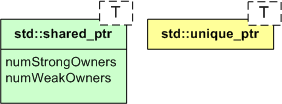Interview: Bjarne Stroustrup Discusses C++ -- William Wong
William Wong recently interviewed Bjarne Stroustrup for Electronic Design.
Interview: Bjarne Stroustrup Discusses C++
by William Wong
Much of the content will be familiar to those who've seen or read other recent interviews, but it's a nice concise summary of the essence of C++ including examples in code. If someone you know wonders why C++ was created, or what is the essence of its purpose as a language, or how modern C++ code looks and feels, this article is a good place to send them.

 The past week saw new releases of two major C++ implementations, with a focus on standards conformance improvements.
The past week saw new releases of two major C++ implementations, with a focus on standards conformance improvements. Building upon the resounding success of C++Now 2013 and five years of BoostCon, C++Now 2014 will present leading speakers from the whole C++ community. We invite you to submit session proposals to the third annual C++Now Conference:
Building upon the resounding success of C++Now 2013 and five years of BoostCon, C++Now 2014 will present leading speakers from the whole C++ community. We invite you to submit session proposals to the third annual C++Now Conference: The
The  A little nugget about the free-as-in-no-overhead-ness of
A little nugget about the free-as-in-no-overhead-ness of  In this article, Eric Niebler discusses an issue of API design regarding the age-old question of out parameters versus return-by-value, this time in light of move semantics. He uses
In this article, Eric Niebler discusses an issue of API design regarding the age-old question of out parameters versus return-by-value, this time in light of move semantics. He uses